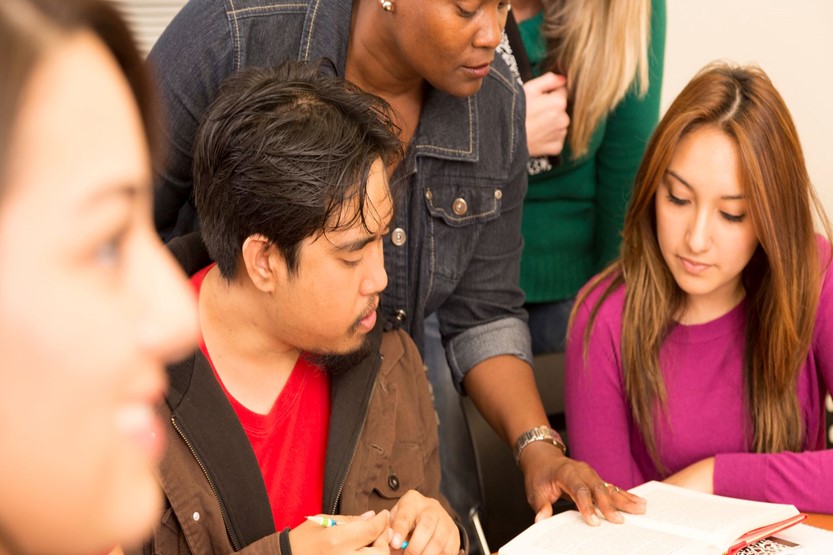In any academic setting, while all students have access to similar resources, only a few emerge as toppers. What qualities set these high-achievers apart? Let’s investigate:
1. Inherent Motivation and Zeal
Every subject has its aficionados. Toppers often exhibit a fervent passion for their subjects, leading them to not just study but immerse themselves in their learning. This innate enthusiasm makes studying less tedious and more fulfilling.
Finding a subject you’re truly passionate about can be the key to both academic and professional success. However, identifying that passion sometimes feels like searching for a needle in a haystack. If you’re uncertain about what truly excites you, consider these strategies to unearth your genuine interests and passions:
- Reflect on Past Experiences
- Think about classes, seminars, or workshops you’ve attended in the past. Which ones sparked genuine interest?
- Recall projects or assignments that you thoroughly enjoyed working on. Why were they enjoyable?
- Engage in Broad Exploration
- Take introductory courses in various fields to expose yourself to different subjects.
- Read widely – from books and articles to blogs and journals – in diverse areas.
- Pursue Hands-on Experiences
Engage in internships, workshops, or volunteer opportunities related to potential subjects of interest. Practical experience can often provide clearer insights than theoretical learning.
- Join Discussion Groups and Forums
- Engaging with others in discussions can illuminate what subjects you genuinely enjoy.
- Observing what topics you gravitate towards in conversations can be telling.
- Identify Personal Strengths
- Understanding what you’re naturally good at can guide you towards a subject you might be passionate about.
- Take aptitude or personality tests, like the Myers-Briggs Type Indicator or the Strong Interest Inventory.
- Seek Feedback
Ask peers, mentors, or educators about the subjects they feel you show genuine enthusiasm for. Sometimes, outsiders observe what we might overlook.
- Follow Thought Leaders and Influencers
Identify and follow experts in various fields on platforms like Twitter, LinkedIn, or through their blogs. Their passion and expertise can inspire or resonate with you.
- Listen to Podcasts and Webinars
There’s a plethora of educational content online that covers a wide range of subjects. Listening to experts discuss their fields can ignite your own interest.
- Attend Workshops and Seminars
Being in an environment that promotes learning and discussion can be stimulating. You might stumble upon a subject that resonates with you.
- Journal Your Experiences
Documenting your feelings and experiences as you explore different subjects can help in identifying patterns of interest.
- Self-assessment and Visualisation
Imagine a future where you’re working or studying a particular subject daily. Does that future excite you?
- Re-evaluate Often
As you grow and evolve, your interests might too. What didn’t interest you a few years ago might become a newfound passion.
Finding your passion isn’t always a straightforward journey; it often requires introspection, exploration, and patience. By actively seeking out and engaging with a variety of subjects, you increase your chances of pinpointing what genuinely captivates you.
Remember, the goal is to find a subject that not only interests you but also feels fulfilling and aligns with your personal and professional aspirations.
2. Study Techniques for Toppers: It’s All in the Method

While many students clock in numerous study hours, toppers tend to employ proven study techniques. Methods like active recall, spaced repetition, and summarisation are not just about studying longer but studying smarter.
Here are some of the most effective study techniques toppers use:
- Active recall: Test yourself! Try to remember your notes without peeking. It helps you remember better and see what you missed.
- Spaced repetition: Review your notes after a day, then a week, then a month. This makes sure you don’t forget things.
- Summarisation: Put big ideas into your own short words. It helps you understand and remember better.
- Teaching others: Tell a mate or family what you’ve learnt. It helps clear things up and shows where you need more work.
- Study groups: Learn with friends! Swap ideas, solve tough bits, and cheer each other on.
- Self-testing: Have a go at quiz questions before the big test. It shows how ready you are and boosts your exam skills.
- Mnemonics: Use tricks like funny rhymes or pictures to remember things. Makes studying a laugh and sticks in your head!
- Pomodoro technique: Study for 25 minutes, then chill for 5. It keeps you sharp and on the ball.
- SQ3R method: Here’s a cool 5-step plan: Survey, Question, Read, Recite, and Review. It makes reading and remembering way easier.
- Retrieval practice: Try and remember your notes without peeking after some time. It helps you remember better and spot what you missed.
- Elaboration: Add extra bits or explain stuff you’re learning. It helps you get it and link ideas together.
- Interleaving: Mix up your study topics or problems. It boosts your problem-solving and helps you use what you learn in different ways.
3. Steadfast Consistency

Though many may claim long study hours, the distribution of these hours plays a pivotal role. Toppers understand the significance of steady, consistent learning over sporadic cramming sessions. It’s about making study time count every single day.
Here’s how to make a study plan to milk the most of your study sessions:
- Examine how you currently study. Ask yourself what’s good and what needs changing. Are you an early riser or do you like late nights? Do you learn best by seeing, hearing, or doing? How long do you spend on each topic?
- Start planning from your exam dates. Circle these big days on your calendar and set your study times around them. Make sure you’ve got enough days to go over everything. Focus more on the harder or key topics.
- Try to study at a similar time daily. This makes studying a regular thing for you. Pick a time when your brain’s really awake. Don’t study if you’re too tired, hungry, or if there’s too much going on.
- Set aside some study time every day. Even if there’s no test soon, keep looking over your notes. This stops you from forgetting and helps you avoid last-minute rushes. Try for a study chunk of at least 30 minutes daily.
- Use mock exams and revision guides. They show where you’re doing well and where you need help. They also get you used to what the real exam feels like. Look for these tests online or in bookshops.
- Listen to music while studying. It can calm you down, lift your spirits, and help you concentrate. But remember, pick calm or classic tunes that aren’t too noisy or distracting.
4. A Sound Mind in a Sound Body

Emotional and psychological stability is at the core of the qualities of toppers. These students often have strategies to manage stress and ensure they get adequate rest. It underscores the importance of not just intellectual, but emotional intelligence in academic success.
Here are a few 5-minute techniques to de-stress when you get too busy in college:
- Try smiling or laughing. It can make you feel better. Watch something funny, read a joke, or think of a funny memory.
- Have some gum. It might help you relax and get more blood to your brain. Pick a minty or fruity one to feel more awake.
- Drink some water. If you’re thirsty, you might feel tired or grumpy. Water can perk you up. For a tasty twist, pop in lemon or cucumber slices.
- Take a big breath. It can help you chill out and slow your heartbeat. Give 4-7-8 breathing method a go: breathe in for 4 counts, hold for 7, and breathe out for 8.
- Listen to tunes. Music can make you feel good. Pick a song you love and, if you fancy, have a sing or a dance.
- Hug someone. A good hug can make you feel close and calm. Hug a mate, family, or even a pet.
- Play a fun game. Games can take your mind off worries. Go for a board game, cards, or a video game. Just pick one that’s fun and not too hard.
- Use your senses. It keeps you in the moment and away from stress. Try the 5-4-3-2-1 technique: spot 5 things, hear 4 sounds, touch 3 things, smell 2 things, and taste something.
- Jot things down. Writing about what’s up can make you feel better. Use any paper or even a diary. If someone’s bugging you, write them a letter but keep it to yourself.
- Think about a raisin. Picture it and think about how it looks, feels, and tastes. It’s a neat trick to make you focus and chill.
5. Engaging with the Learning Process

Despite having access to numerous expert tips for studying, active engagement is a choice. Toppers are those who actively participate, raise queries, and delve deeper into topics, ensuring they don’t just know but understand.
Here are some ways you can actively engage with what you are studying:
- Set up a topic-wise study guide. Make questions with full answers. It helps you sort info, check if you’ve got it, and see what you’re missing.
- Make your own quiz. Use cards or apps to build a quiz from your notes. Test yourself a lot and go over the answers. It’ll make stuff stick in your head.
- Pretend you’re the teacher. Say out loud what you’re learning, like you’re teaching a mate. Use your reflection, record yourself, or chat with a friend. It clears up your ideas and shows if you’ve really got it.
- Add tunes or doodles. Write a song, poem, or draw about what you’re learning. Use fun colours or little memory tricks. It’s a cool way to make learning fun and stick in your head.
- Move about. Walk, stretch, or even dance while studying. Or act out what you’re learning. It wakes you up and links moving to learning.
6. Connecting the Dots with Real-world Application

One of the most effective study techniques for toppers is relating academic concepts to real-world situations. This technique cements the knowledge, making it easier to recall and apply when needed.
For example, if you are studying Business Administration, you can:
- Look at how ads on the internet, telly, or magazines make people choose certain things. Also, see how age, being a boy or girl, or where you’re from can change how you react to ads. You can also use real shop or brand examples to study the effects of advertisement on consumer behaviour.
- Find out how giving workers rewards, like money, gifts, or a simple ‘well done’, can make them work harder. Check if this is different for different jobs or places. You can also use real-life company stories to study the impact of staff motivation incentives on productivity.
- List common problems new shops or companies face, like money issues, advertising, or hiring. Give some ideas to solve these problems. You can read up real-life start-up stories while studying the everyday challenges of small and medium enterprises at the start of trade.
- Dive into the right and wrong ways companies act, like being green, helping the community, or being fair. Weigh up if doing good is good for business. Stories from real businesses can make studying business ethics more relevant.
- Discover different ways to lead, like inspiring change or giving clear orders. Find out what makes a leader great. Stories of real bosses or companies are important anecdores for leadership lessons.
7. Collaborative Learning and Peer Interaction

The journey to the top isn’t always solitary. Toppers often collaborate, form study groups, and engage in discussions, ensuring they benefit from multiple perspectives. It’s not just about their own knowledge but about harnessing collective intelligence.
Here’s what you can do in college:
- Discuss with peers: The teacher asks a tough question. First, you try to answer on your own, then chat about it with friends, and then answer again. Afterwards, you can ask your faculty to explain the right answer and why it’s right.
- Participate in teamwork tasks: Here, you work in small teams to finish a job. Everyone in the team has their own special part to do. You all rely on each other to learn and get the task done.
- Peer review: In this way, you and your mates look at each other’s work like essays or projects and give helpful tips. You can chat about it or write down your thoughts. There might be a guide to help you know what to look for.
Conclusion: Beyond Books – Crafting Academic Success Having the same resources doesn’t promise the same outcomes. The qualities of toppers, combined with effective study techniques and expert tips for studying, distinguish them from the crowd. As you embark on your academic path, seek to imbibe these qualities and strategies, ensuring you don’t just participate, but excel.


